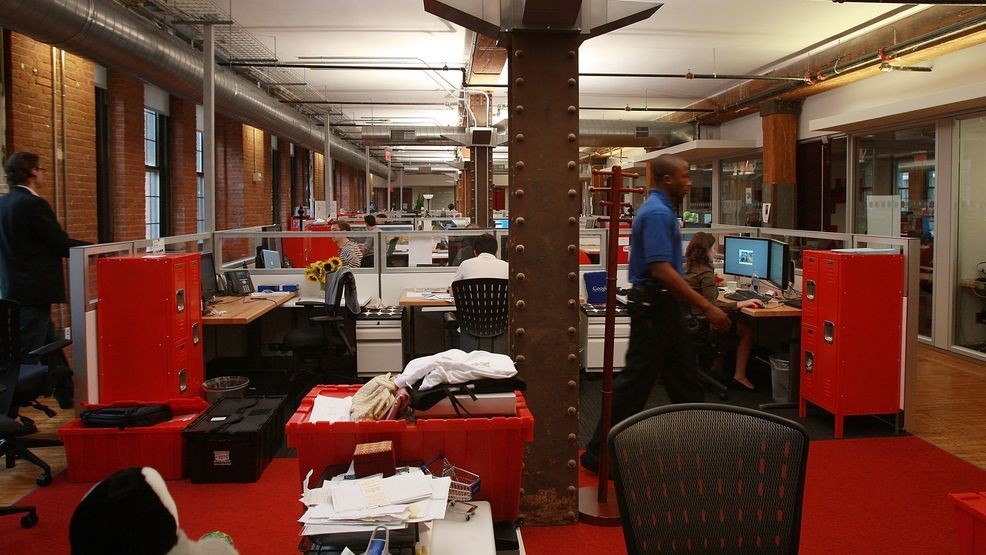(TNND) — LinkedIn released a report focused on “future-proofing your career” as artificial intelligence reshapes a wide range of jobs.
Over 80% of professionals could see at least a quarter of their skills reshaped by AI, LinkedIn said its data shows.
Around one in five professionals hold job titles that didn’t exist in 2000. And AI, specifically generative AI like ChatGPT, has the potential to accelerate the evolving nature of work.
“You need to be realistic that some jobs will be displaced. But in most cases, a lot of these roles have elements that can’t be done by generative AI,” said Andrew Seaman, the editor-at-large for Jobs & Career Development at LinkedIn News.
He said companies will still need people in the loop.
But computer-based jobs are going to be impacted more by AI than those reliant on a physical presence.
“It mostly comes down to roles that require literal human touch,” Seaman said.
A dentist is likely to be affected less by AI than a data analyst.
“I don’t think we have AI yet that can pull out a molar,” Seaman said.
Some jobs already transforming because of AI include those in communications, marketing, human resources, engineering and design.
Some jobs most likely to evolve in the near future due to AI include writer/editor, software engineer, data analyst, videographer, librarian, web designer, marketing strategist, accountant, photographer and translator, according to LinkedIn.
The LinkedIn analysts don’t expect many jobs to remain untouched by AI’s impact.
Social workers deal in human-to-human interaction. But even they, for example, might use AI to help connect clients to more personalized programs, Seaman said.
Workers are anxious about AI.
LinkedIn said a recent survey found that 41% of professionals report feeling overwhelmed with how quickly they’re expected to “get” AI.
A recent survey from the Pew Research Center found that half of Americans are more concerned than excited about the increased use of AI in daily life.
And most people in the Pew Research Center survey said they expect AI to worsen their ability to think creatively or form meaningful relationships.
Another Pew Research Center report found that just over half of workers are worried about AI in the workplace. And around a third of workers expect AI will reduce job opportunities.
A recent Gallup report found that AI use at work has roughly doubled in the last couple of years. But regular AI usage at work is still fairly low.
Just 19% used AI at least a few times a week, and just 8% used it daily.
But Gallup also found that most people expect AI to have a big societal impact, even more than the computer, internet or telephones.
Analysis from Goldman Sachs economists estimated that AI might not lead to widespread job losses some fear. The Goldman Sachs researchers developed a baseline assumption that 6% or 7% of the U.S. workforce could be displaced if AI is widely adopted, though they said displacement rates could vary from 3% to 14% under different assumptions.
Seaman, with LinkedIn, said the knee-jerk reaction might be for people to think they should abandon careers heavily impacted by AI.
But he said smart companies are using AI to free up workers for more human-centric tasks.
“I talked to one company where they were able to use AI technology to handle a lot of the basic customer service needs, and that allowed their customer service operators to actually spend more time on the phone with their customers,” he said.
AI is part of the DNA of business now, even if Seaman said workers are still in the “messy middle” where companies are trying to flesh out the best uses of the technology.
Seaman said he spends a lot of time thinking about how to prepare workers for a future that’s still kind of hazy.
“And really it comes down to adaptability and showcasing where there are overlaps with the technology and where people can lean into being more human,” he said.
Seaman said workers can future-proof themselves for the evolving labor market. But they need to let go of the idea that they’re one thing, or that they’ll work for one company for most of their adult life.
“It’s kind of moving from an identity-based career system to more of a skills-based system,” he said.
LinkedIn said there’s been a sharp rise in members listing AI literacy as a skill, and Seaman said workers shouldn’t wait to embrace AI or adaptability.
“The technology that exists right now has the potential to be very disruptive very soon,” he said. “The question is how quickly it’s implemented.”

